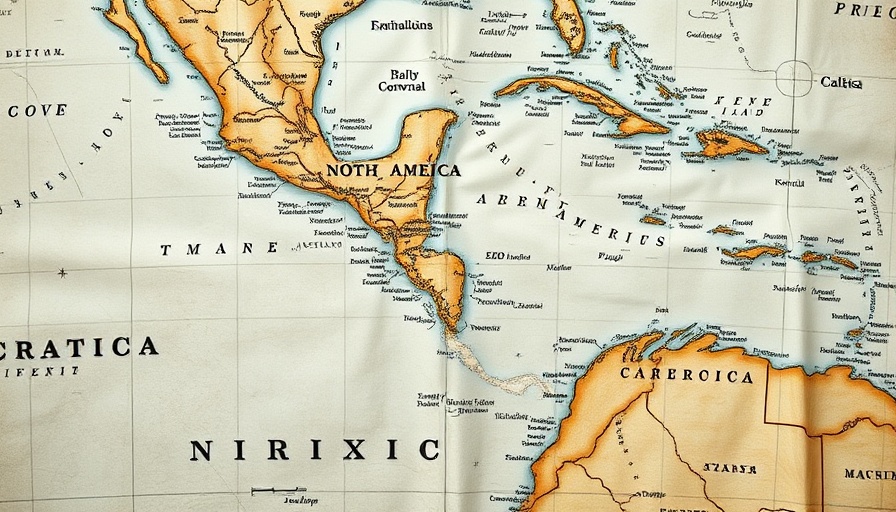
The Fight for the Gulf: Naming Rights Amidst a Digital Revolution
In what appears to be a new episode in the ongoing geopolitical saga of cartography, Mexico has initiated a lawsuit against tech giant Google over its controversial renaming of the Gulf of Mexico. Dubbed the "Gulf of America" for U.S. audiences, the rebranding has ignited fierce diplomatic tensions, underlining the critical intersection of technology, sovereignty, and historical identity.
A Historical Perspective on Nomenclature
The Gulf has been a tactical point of interest since it was first charted by Spanish explorers in the 17th century. Each new name bestowed upon it reflects the shifting power dynamics, from colonial to modern-day assertions. In April 2025, following a controversial U.S. legislation passing, President Donald Trump's administration declared the Gulf of America as a reflection of American influence over the body of water. This legislative and digital renaming is viewed as a move to dominate symbolism tied to Mexican heritage and regional identity.
Google’s Role: More Than Just a Cartographer?
In a world increasingly reliant on digital maps, the actions taken by Google raise questions about corporate responsibilities in global affairs. The tech company’s decision to split nomenclature based on user location transforms it from mere map-producer to a facilitator of geopolitical narratives. Users in the U.S. see "Gulf of America," while those in Mexico and beyond still view the traditional "Gulf of Mexico". However, this artificial division leads to potential misunderstandings and logistical chaos on the water, especially for fishermen and shipping professionals navigating these contested waters.
Legal Roots: Mexico’s Ground for Action
Mexico is positioning itself firmly against this act of digital renaming in what its government believes undermines its sovereignty and historical context. The claim that Google has usurped state authority by labeling the international waters as "Gulf of America" poses critical questions about who maintains control over digital geography. In legal terms, Mexico’s assertion of harm is built on a perception of cultural destruction and territorial infringement, thus initiating the lawsuit.
The Broader Implications of Digital Geography
Maps are not merely tools for navigation; they are powerful symbols of identity and history. As technology continues to disrupt traditional notions of geography, the manner in which powerful corporations like Google choose to represent geographical regions is pivotal. Will Google face a backlash for being complicit in what some view as a form of digital imperialism? Can local laws truly govern a global entity’s influence on international affairs? The answers may redefine political and corporate relationship boundaries in the future.
A Call for Reflection on Navigational Identity
This unfolding narrative around the Gulf marks a crucial opportunity for reflection on the implications of how we interact with digital maps. The case illustrates the importance of understanding the historical context behind geographical names and their significance to nations' identities. As digital cartography advances, it is vital for tech companies to consider the cultural ramifications behind their decisions.
What Comes Next?
The movement toward the lawsuit raises important questions around technology's role in international relations and cultural preservation. As this case unfolds, it will serve as a litmus test for the balance between corporate interests and national identities in the 21st century. For now, observers are witnessing a trial that surpasses mere nomenclature; it is indeed a battleground for identity, heritage, and digital sovereignty.
 Add Row
Add Row  Add
Add 




Write A Comment